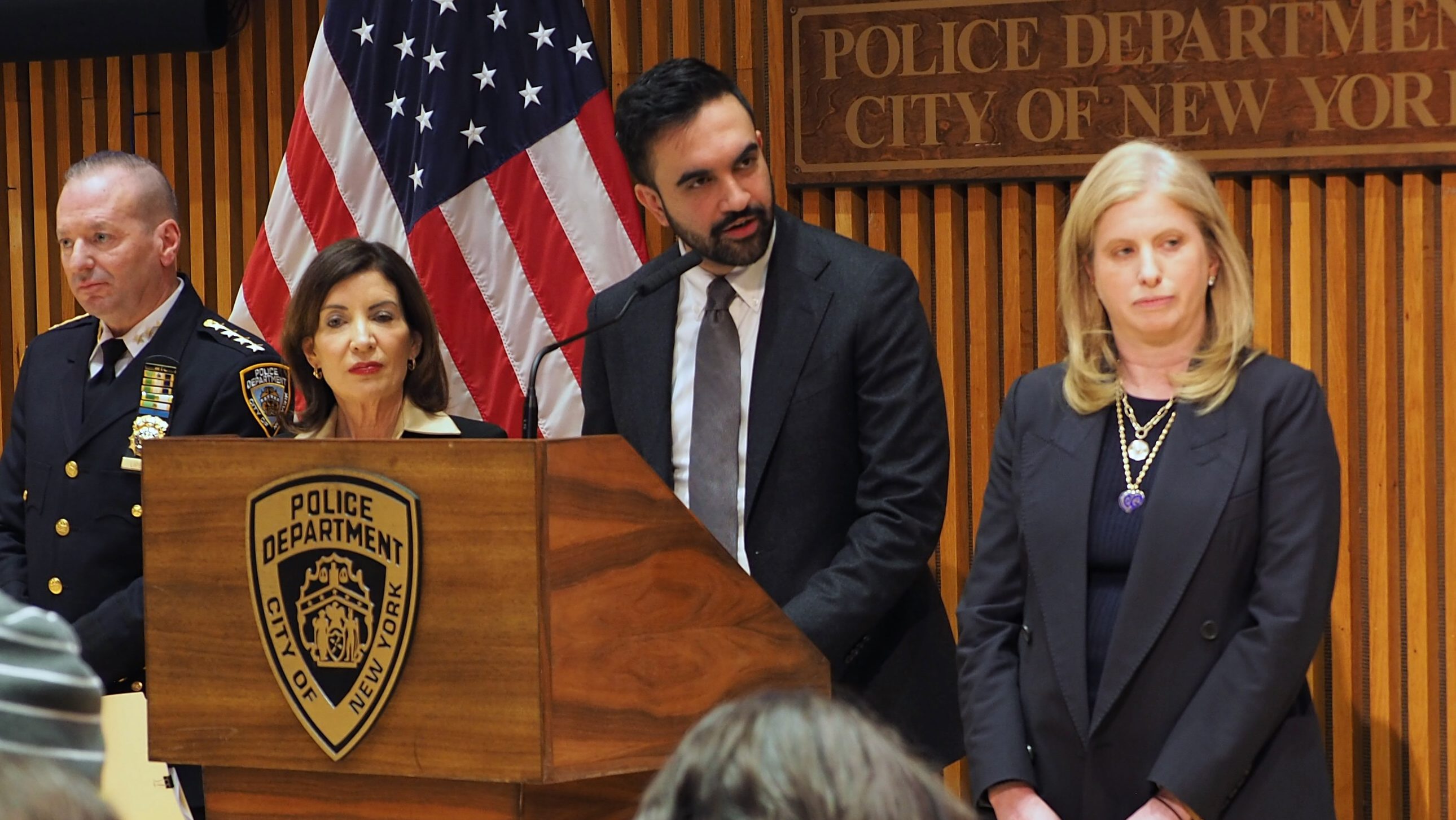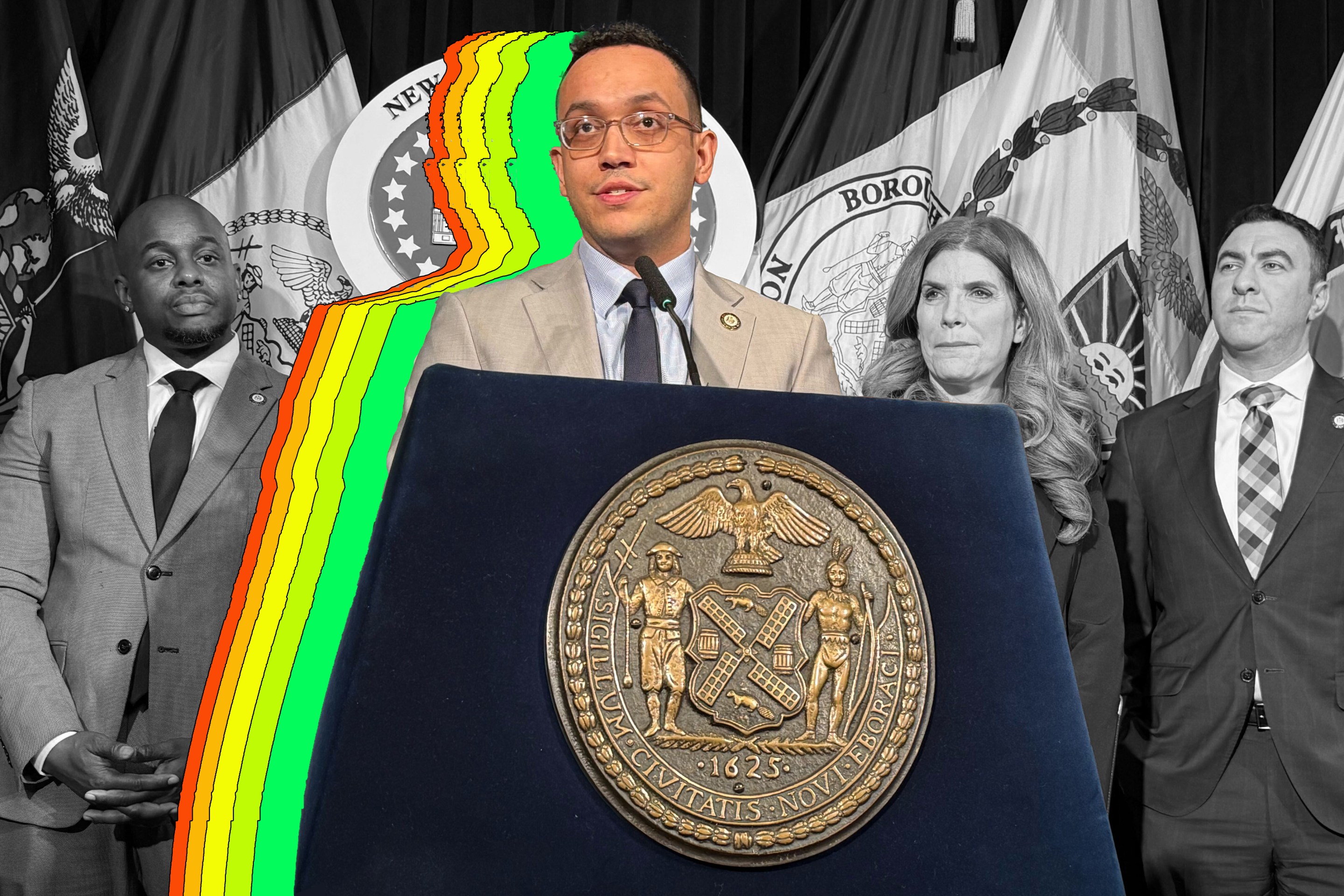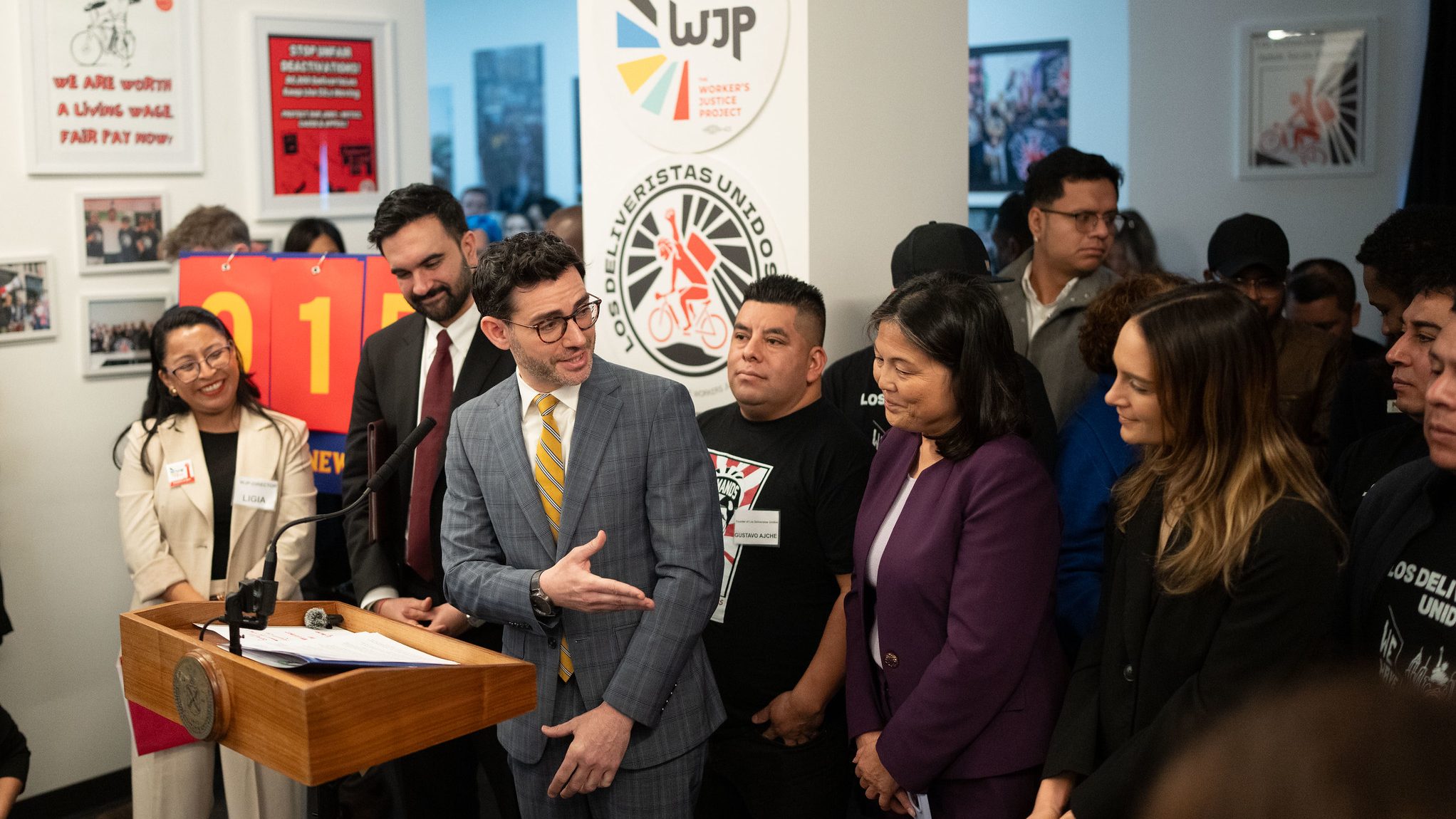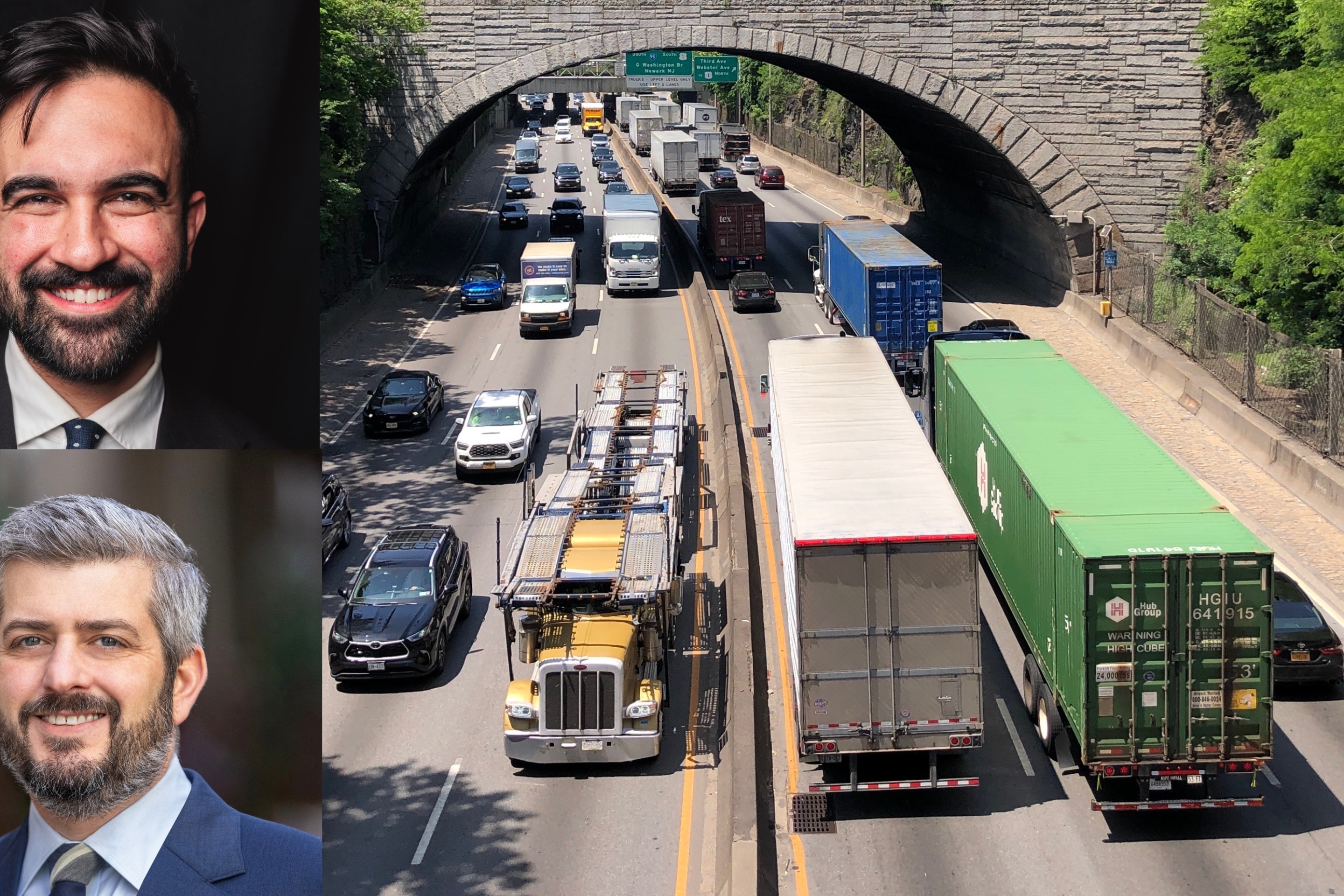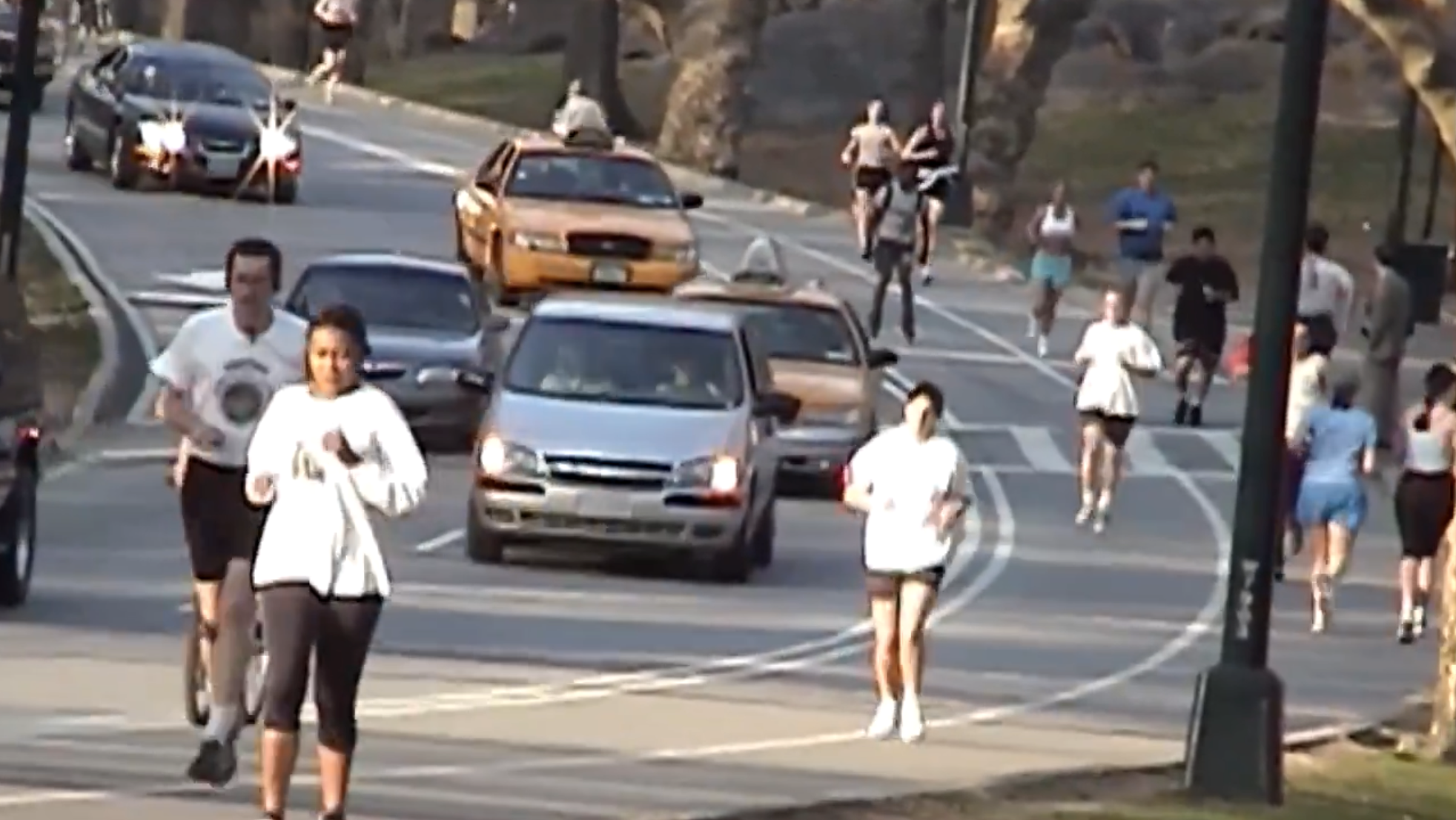Members of Congress of all stripes are trying to show that they’re concerned and responsive to the financial strain caused by high gas prices. Some are recommending more oil drilling. Some want to end subsidies to oil companies. Today, members of the Congressional Livable Communities Task Force suggested that providing more diverse transportation options to more people might help.
“Here in Washington, DC, when gas prices spike, people have choices,” said Rep. Earl Blumenauer (D-OR), chair of the Task Force. “They can take a bus, Metro, bike, Capital Bike-share, walk, cab, drive. It’s a wide range of [choices] and it actually minimizes some of the sticker shock. But unfortunately, about half the American population doesn’t have an environment they live in that provides those choices. Too much of America is dependent on a pattern that imagines that we will always have an unlimited supply of inexpensive gasoline, and government policies in housing and road transportation reinforce that.”
Blumenauer and other members of the Task Force introduced a report this morning called "Freedom From Oil: Policy Solutions From the Livable Communities Task Force." It's an impressive product from a Congressional task force, many of which exist in name only. The more than two dozen members of the Livable Communities Task Force, all House Democrats, strive to make the federal government a better partner with communities to promote "cost-effective, environmentally friendly solutions to infrastructure problems" and "coordinate transportation, housing, and environmental policies and investments."
The lawmakers of the Task Force said increasing oil drilling in the U.S. will never have an appreciable effect on world oil prices, because the price of oil is determined globally and the U.S. supply won’t be sufficient to make a significant difference.
“Here’s the harsh reality: The United States is never going to have control over world oil supplies or gas prices through drilling,” said Task Force member Rep. Lois Capps (D-CA). “We simply don’t have the oil supplies, no matter how much we drill. What we do have is the ability to control prices by lowering our consumption and giving American families new transportation choices."
Rep. Jim Moran, a Democrat from Northern Virginia, boasted about Arlington’s livability program, including contiguous bike trails, bike racks, and transit-oriented development. “It’s the only way to effectively work against this monopolistic control that for too long the oil companies have had over America’s policies and priorities,” Moran said.
The Freedom From Oil policy recommendations are:
- Set clear national priorities for our transportation system, including a strategy and performance measures for reducing oil consumption.
- Require Metropolitan Planning Organizations to evaluate the effects of new transportation projects on regional petroleum consumption.
- Promote Pay-As-You-Drive insurance, allowing consumers to pay less if they drive less.
- Encourage lenders to use transit accessibility and location efficiency as a factor in mortgage rates, taking into account the reduced spending on gas and making it easier to purchase a home that allows transportation savings.
- Provide consumers with information about the transportation costs associated with the location of a house through a tool like the Transportation and Housing Affordability Index
- Use the tax code to encourage businesses to offer comprehensive commuter benefit programs that level the playing field for alternative, non gas-dependent transportation.
- Increase federal funding for transit, including allowing capital funds to be spent on operations, helping transit agencies deal with increased fuel prices without compromising service or access.
- Increase funding for “Safe Routes to School” programs so that parents and children have the option to get to school safely without driving.
- Support “Complete Streets” policies that design streets for all users, making it safer for people of all ages to travel by bike, foot, or public transportation.
- Authorize the Office of Sustainable Communities at the Department of Housing and Urban Development (HUD) and provide funding to the Partnership for Sustainable Communities so that the agencies can continue to provide technical assistance, planning, and capital support to communities.
- Continue to increase fuel efficiency of passenger vehicles, which could save drivers the equivalent of $1.00-1.70 per gallon of gas.
- Increase investment in alternative fuels like electric vehicles, which could save drivers $1000 in fuel costs each year.
Republicans often say theirs is an “all of the above” energy strategy, including drilling, nuclear, and alternatives. But as Moran pointed out, “the same people that vote for big oil subsidies also seem to vote against public transit.” Dan Weiss of the Center for American Progress Action Fund calls Freedom From Oil the real “all of the above” strategy – “not oil above all.”
While over the last few years, most transportation bills have been introduced with the intention that they would be folded into the reauthorization, pessimism that a bill will pass this year has changed that.
“The reauthorization is going to be a challenging task,” Blumenauer said. “I would not place any bets on seeing reauthorization happen anytime soon. But there is no reason these principles cannot be employed in legislative vehicles that are moving through Congress.” He suggested that taxation or energy legislation could be that vehicle.

